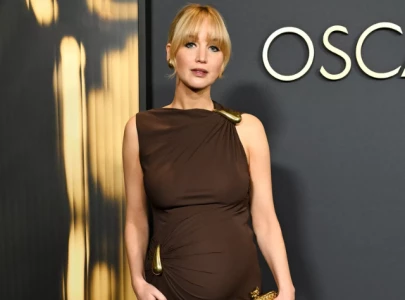
After a distinguished academic career, Ali started teaching at the Forman Christian College in Lahore. He briefly joined government service only to resign in 1914 and became editor of the English weekly The Observer. In 1916, he completed his legal studies and gained the top position in the LLB examinations of Punjab University.
Ali was very critical of Sir Michael O Dwyer, Punjab’s lieutenant governor in 1913, who imposed censorship and asked the weekly’s proprietors to sack him, but they instead chose to suspend the publication.
Ali was elected to the Punjab legislature on the Muslim League ticket in 1937 and in 1946. From 1937 to 1944, he alone represented the Muslim League on the floor of the Punjab legislature. He participated in the Muslim League’s annual sessions held in Bombay, Aligarh and Delhi in 1924, 1925 and 1926 respectively.
Ali was a close associate of Allama Iqbal, with whom he shared identical views on major political issues. This association continued until Iqbal died in 1938. On June 19, 1930, Ali and Iqbal, jointly sponsored a resolution with Gokal Narang and Nanak Chand in the Lahore High Court Bar Association, condemning the unfair trial of Bhagat Singh.
On April 29, 1936, Mr Jinnah came to Lahore to organise the Punjab Provincial Election Board. He met Iqbal on May 1, 1936, who assured him of his wholehearted support on the formation of a parliamentary board. On May 8, 1936, a joint press statement was given where Iqbal, Ali, Khalifa Shujauddin and Pir Taj Din announced their support and cooperation to Jinnah.
The Punjab Muslim League session held on May 12, 1936 at in Lahore, elected Iqbal as its president, Ali and Shujauddin as vice-presidents, Ghulam Rasool as secretary and Ashiq Batalvi as joint secretary. Ali was also amongst the four members nominated by Jinnah to prepare the draft of the Lahore Resolution on March 21, 1940. On March 22, 1940, Jinnah presented the Lahore Resolution in an open session of the Muslim League held in Lahore.
The Pakistan Resolution was later also adopted at the Madras session of the Muslim League in April 1941 and at the legislatures convention in Delhi on April 9, 1946, where it was declared that Pakistan will be a modern, democratic welfare state comprising Punjab, Sindh, Balochistan, Sarhad, Bengal and Assam.
Unfortunately, we as a nation, have betrayed the vision of our founding fathers.
Published in The Express Tribune, April 5th, 2012.
COMMENTS (17)
Comments are moderated and generally will be posted if they are on-topic and not abusive.
For more information, please see our Comments FAQ


1732085354-0/insta-(1)1732085354-0-165x106.webp)

1725366721-0/kyle-(1)1725366721-0-165x106.webp)






Shahzad, You have turned history uipside down. The 1857 mutiny against British rule was led by people from UP ( mostly Hindus and some Muslims of UP ) and the British crushed it with help of Punjabi/Sikh army. You dont need to trust me, just google. The remarks on Nehru are also completely wrong. Nehru was a publicly acknowledged agnostic/atheist. He was not even a practicing Hindu. He was known as bein 'too secular" in secular India. He has as many personal Muslim friends as friends from any other religion. You will find it hard to find politicians more secular than Nehru. All this Brahmin dominance that you talk about is mostly in the propoganda space. In largest state in UP, which has a population equal to Pakistan, the elected leader for many years is a so called lady from lower caste.
@Shahzad And can you tell me what are the views expressed by Bhagat Singh?
About Muslim India
Although I have reading about these issues for many years, the connotations and implications of "Muslim India' became clear to me only now. Thank you, Malik Tariq Ali.
@ BruteForce--you better read views expressed by Bhagat Singh on Gandhi and Nehru to find out the reality. The fact of history is that men like Nehru believed in the policy of dominance of Brahmin Hindus over Moslims, Christians, Parsis, Sikhs and even Dalit Hindus. It was because of this bias, which exists in India even today that there was a call for freedom by Muslims. Pakistan is a reality and so is India. Remember when Muslim majority of what was East Pakistan seperated in 1971, they went for Bangla Desh and not to merge as part of India. Those who fought with the British were Sikhs from East Punjab and Bengali Muslims from Bengal, not the Hindus. The other factor was the mutiny within the British Army, which comprised mostly of Sikhs and Muslims who refused to fight in 2nd World War against Japanese which created worries for British Raj and they sought help with promises for liberating India, in exchange for co-operation to fight the war.
@Deb:
There was another comment by me asking whom did the person in question fight to get Freedom- British or non-Muslims of India. It was not published.
Such a simple question.
I also pointed out how real Freedom Fighters from British India have sacrificed their lives, have been shot at or have been imprisoned for years together in British Jails. And, not many Muslim Leaguers have done that since they were friendly with the British. Best example is that of Jinnah and even this guy.
What is so abusive about the truth, I dont understand.
@BruteForce
There was another (in addition to the one you articulated) difference between Jinnah and Gandhi. Gandhi wanted freedom from British.Jinnah wanted freedom from Hindus.He was prepared to accept a loose confederation of selfruled states under the British flag.
@Billoo, just read the history of the day of 'direct action' and who was the architect of it, and you will get all the answers. That day of direct action in 1946, August was the 'First Mass Riot before partition' that culminated in the partition riots. More than a million human beings laid massacred at the end and it all started with the 'day of direct action'.
You cannot have a democratic, pluralistic Pakistan if you consider JMr Jinnah to be 'not a communal politician'. You are then destined to be ruled by Taliban ideology, sooner or later , because that ideology is closer to the politics of the 'day of direct action' and the ideology that inpisred it.
It seems we have forgotten the fate and economic hardships that muslims faced in undivided India. Before partition even in the city of Lahore, the muslims lived either within the walled city, or in Mozang and there were no more than 10 big houses owned by them outside these two localities. This was exactly the same conditions in which they lived in Delhi or Agra etc. Even today the majority of muslims living in Delhi are confined to Delhi's old walled city near the mosque. There were only three states or provinces in India where the muslims had a numerical majority which was in Bengal, Sarhad and Punjab, while there were 3 states namely Bengal, Assam and Punjab which had governments led by muslim premiers. In 1937 it was agreed at Lucknow that all these muslim members would sit on Muslim League seats in their respective provincial assemblies, which agreement was complied to by Bengal and Assam but not by the Unioinist led government of Sikandar Hayat in Punjab, where Malik Barkat Ali alone represented the Muslim League in Punjab Legislature from 1937 till 1944, while the other more than 76 muslim members sat on the Unioinist benches, a coalition of Chothu Ram's Zamaidar Party, the Akali Dals and Sir Sinkandar Hayat. Yes Pakistan was carved out on the basis of muslim majority states, but Quaid knew that a state cannot exist if injustices are done to majority, which is what he stated on 11 Aug 1947.
Jinnah Saheb knew that a country can be created on the basis of religion but it cannot survive on that basis. This is why he wanted to establish a state whose foundations were to be built on a constitution, which delivers justice to its citizens based on equality and that he elaborated in his 11 Aug 1947 speech. We need to understand that it were the excesses of the dominant and financially strong Hindu majority, whose religion allows discrimination based on parental heritage which forced the Muslims to seek for themselves an independent sovereign state.
@Babloo:
You are absolutely right. Jinnah in his several speeches has referred to Muslim India(a thoroughly communal phrase).
Gandhi has always referred to "Musalmaan brothers".
The difference between Gandhi and Jinnah is simple: One used Religion to unite, the other to divide.
@Babloo:
that is itself a proof that the 11 august speech of jinnah was a mere sham, and once done in lifetime event, and jinnah to the core was a communal leader, never a nationalist. he never had any vision towards pakistan, all he wanted was seperate state for muslims and nothing else.
"Unfortunately, we as a nation, have betrayed the vision of our founding fathers."
Pray what was that vision? If Ali's vision was similar to Iqbal's who proudly proclaimed all mankind oneday would have to take up Islam then Pakistan is fulfilling that "vision" every day. If that vision was to build a "modern democratic welfare state", the stamp of failure was fixed on that vision the day Muslim League called for direct action. An inclusive democratic secular welfare state simply cannot be formed through widespread riots blood and gore. There is something called "force of history" which is bigger than any one person or his wishes.
The Lahore Resolution was drafted by Sir Muhammad Zafrulla Khan (as described in Facts are Facts by Wali Khan pg. 40-42). Sir Zafrulla was an Ahmadi and has been sidelined by historians. Mr. Malik should have taken note.
This is precisely our tragedy, we took off with the hope of becoming a welfare state and now after 65 years, we are still nowhere close to our goal since somebody somewhere decided that may be we are better off being a security state. The only way back out is getting back to our vision of democratic pluralistic welfare state.
Its very revealing that Mr Malik Barkat Ali, is repeatedly referred to by Jiinah as a 'leader of Muslim India'. Its reflective of how Mr Jinnah viewed India as made of two totally different entities , like 'Muslim India, and 'Hindu India'. I have never heard an Indian refer to Indian leaders as 'leader of Hindu India'.